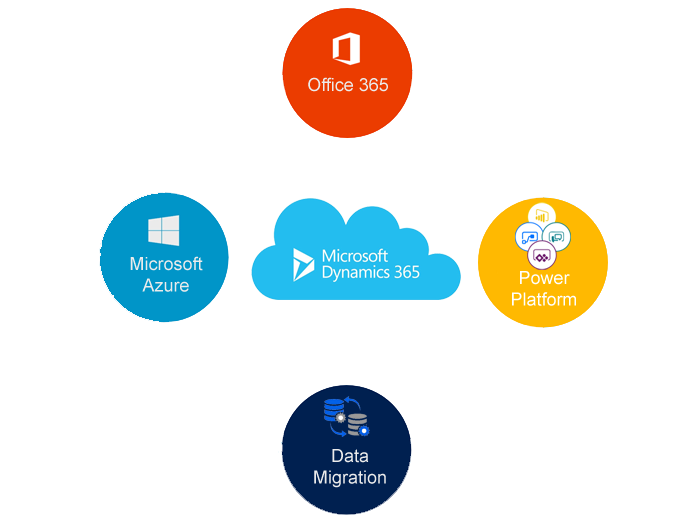2. > 3(B,C,D) Contact record will be child of 1(A-Parent)
3. > When ever A-Parent information will be changed should be refelected to their respective child also. -plugin/Jscript
4. > Selection of parent lookup — Data wil be fetch through Jscript OData.
Description
———–
Optionset value -> Parent/Child
[ If parent is selected from parent/child field then parent field and parent section fields parentemail and parentphonenumber will be disabled]
[ if child is selected from parent/child field then parent field should be required field and the parent section fields parentemail and parentphonenumber should be
auto populated from parent record].
Create new entity Donation
create fields
————-
parent/child = optionset = parent, child(business required field)
parent = lookup to itself
emailaddress = text field
phonenumber = phonenumber
gender = optionset= male/female
companyname = text field
designation = text field
city = text field
country = lookup to country entity//(in the country entity only add country field)
CREATE NEW SECTION CALLED PARENT SECTION LABEL(TWO COLUMN)
Fields
—–
parentemail = text field
parentphonenumber = text field
======================================================================
Javascript is as follows:
function FormOnLoad() {
/*For Type
0 -Undefined
c 1- Create
u 2-Update
r 3-ReadOnly
d 4 -Disabled
*/
var type = Xrm.Page.ui.getFormType();
Xrm.Page.getControl(“new_parentemail”).setDisabled(true);
Xrm.Page.getControl(“new_parentphonenumber”).setDisabled(true);
if (type == 1) {//Create Mode
//TODO : by default optionset value will be parent and parent lookup should be disabled.
var optionSet = Xrm.Page.data.entity.attributes.get(“new_parentchildoptionset”);
optionSet.setValue(100000000);
Xrm.Page.getControl(“new_parent”).setDisabled(true);
} else {
var parentChildOptionSet = Xrm.Page.data.entity.attributes.get(“new_parentchildoptionset”);
if (parentChildOptionSet != null) {
var optionsetvalue = parentChildOptionSet.getValue();
// this for parent
if (optionsetvalue == 100000000) {
Xrm.Page.getAttribute(“new_parent”).setRequiredLevel(“none”);
Xrm.Page.getControl(“new_parent”).setDisabled(true);
} else if (optionsetvalue == 100000001) {
Xrm.Page.getControl(“new_parent”).setDisabled(false);
//Setting the required filed
Xrm.Page.getAttribute(“new_parent”).setRequiredLevel(“required”);
}
}
}
}
function OnChange_ParentChildOptionSet() {
var optionsetvalues = Xrm.Page.data.entity.attributes.get(“new_parentchildoptionset”);
var optionsetvalue = optionsetvalues.getValue();
// this for parent
if (optionsetvalue == 100000000) {
Xrm.Page.getAttribute(“new_parent”).setRequiredLevel(“none”);
Xrm.Page.getControl(“new_parent”).setDisabled(true);
} else if (optionsetvalue == 100000001) {//Child
Xrm.Page.getControl(“new_parent”).setDisabled(false);
Xrm.Page.getAttribute(“new_parent”).setRequiredLevel(“required”);
}
}
function OnChange_ParentLookup() {
var parentlookup = Xrm.Page.getAttribute(“new_parent”).getValue();
if (parentlookup != null) {
var lookupId = parentlookup[0].id;
var CrmServerUrl;
if (typeof GetGlobalContext != “undefined”) {
CrmServerUrl = GetGlobalContext().getClientUrl();
} else {
if (typeof Xrm != “undefined”) {
CrmServerUrl = Xrm.Page.context.getClientUrl();
} else {
alert(“Context is not available.”);
}
}
if (CrmServerUrl.match(//$/)) {
CrmServerUrl = CrmServerUrl.substring(0, Crm.length – 1);
}
//REST SERVICE WITH ODATA.
var oDataPath = CrmServerUrl + “/XRMServices/2011/OrganizationData.svc”;
var fetchData = new XMLHttpRequest();
var Odata = oDataPath + “/new_donationSet?$select=new_phonenumber,EmailAddress&$filter=new_donationId eq (guid'” + lookupId + “‘)”;
fetchData.open(“GET”, Odata, false);
fetchData.setRequestHeader(“Accept”, “application/json”);
fetchData.setRequestHeader(“Content-Type”, “application/json; charset=utf-8”);
fetchData.onreadystatechange = function () { retrieveParentDetails(this); };
fetchData.send();
}
}
retrieveParentDetails = function (fetchData) {
if (fetchData.readyState == 4) {
var fetchD = this.parent.JSON.parse(fetchData.responseText).d;
if (fetchD.results.length > 0) {
var phoneNumber = fetchD.results[0].new_phonenumber;
var email = fetchD.results[0].EmailAddress;
Xrm.Page.getAttribute(“new_parentphonenumber”).setValue(phoneNumber);
Xrm.Page.getAttribute(“new_parentemail”).setValue(email);
}
}
}



